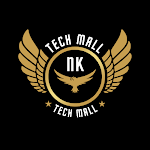Image by Mohamed Hassan from Pixabay
NetSuite is a leading cloud-based enterprise resource planning (ERP) solution . That offers a comprehensive suite of business management software applications. It provides organizations with a unified platform to manage their core processes. Including financial management, supply chain management. Customer relationship management (CRM), human resources, and e-commerce. NetSuite's cloud-based approach offers flexibility, scalability. And accessibility, allowing businesses to access their data and perform. Tasks from anywhere with an internet connection.
One of the key advantages of NetSuite . its ability to streamline and automate business processes. With its integrated modules, organizations can drop manual data entry, improve accuracy. And enhance operational efficiency. For example, NetSuite's financial management module provides robust features for managing accounting. Invoicing, budgeting, and reporting. By automating financial processes, businesses can save time, reduce errors. And gain better visibility into their financial health.
NetSuite also offers powerful supply chain management capabilities. The solution enables end-to-end visibility and control over the supply chain. From procurement and inventory management to order fulfillment and shipping. This helps businesses optimize inventory levels, improve order accuracy, and enhance customer satisfaction. Moreover, NetSuite's CRM module helps businesses manage customer interactions. Sales pipelines, and marketing campaigns. Enabling them to nurture leads, improve customer service, and drive revenue growth.
Additionally, NetSuite supports e-commerce operations . With its suite of tools for managing online storefronts. Order processing, and customer self-service portals. This allows businesses to create seamless and personalized online shopping experiences. Integrate their e-commerce activities with back-end operations, and streamline order fulfillment processes.
NetSuite's cloud-based architecture also offers advantages terms of scalability and flexibility. Businesses can scale up or down their operations as needed. Without the need for significant infrastructure investments. Furthermore, NetSuite's platform enables customization and integration with other business applications. Allowing organizations to tailor the system to their specific needs . Integrate it with existing systems .
NetSuite has gained popularity across various industries, from small and medium-sized enterprises. To large multinational corporations. Its interface, robust features, and scalability make . It a suitable choice for organizations looking to centralize their operations. Improve efficiency, and gain real-time insights into their business performance.
In conclusion, NetSuite is a powerful cloud-based ERP solution that offers businesses. A comprehensive suite of tools to manage their operations . With its integrated modules, automation capabilities, and scalability. NetSuite empowers organizations to streamline processes, enhance productivity, and make data-driven decisions. By leveraging NetSuite's features, businesses can gain. A competitive edge, improve customer satisfaction, and drive sustainable growth.
The three common types of ERP systems are
On- Demesne ERP This type of ERP system . Installed and hosted on the company's own waiters and structure. The association responsible for managing and maintaining the tackle, software. And IT coffers needed for the ERP system. On- demesne ERP provides complete control and customization options but requires significant . Outspoken investment, ongoing conservation, and devoted IT support.
pall- grounded ERP Also known as Software as-a-Service( SaaS) ERP. This type of ERP system hosted and managed by a third- party provider in the pall. druggies pierce the ERP system through web cybersurfers or mobile apps. And all data and operations stored and reused in the provider's data centers. pall- grounded ERP offers inflexibility, scalability, and cost savings. As the provider handles structure operation, updates, and security. It allows businesses to pierce their ERP system from anywhere. Promotes collaboration, and reduces the need for expansive IT coffers.
mongrel ERP A mongrel ERP system combines rudiments of both on- demesne and pall- grounded ERP. It allows associations to keep certain sensitive or critical functions. On- demesne while using pall- grounded capabilities for other areas. This mongrel approach enables businesses to balance security enterprises. With the benefits of pall- grounded scalability and availability. For illustration, an association might choose to host sensitive fiscal data on- demesne. But use a pall- grounded ERP system for client relationship operation ore-commerce operations.
Each type of ERP system has its own advantages and considerations. And the choice depends on factors similar as budget, IT capabilities. Security conditions, scalability requirements, and assiduity-specific regulations. Businesses should estimate their conditions and consider the long- term counteraccusations . Before opting the most suitable ERP result for their association
Does NetSuite have ERP?
Yes, NetSuite is a comprehensive cloud-based ERP solution . It offers a wide range of modules and functionalities. To support various aspects of business management. Including financial management, supply chain management, customer relationship management (CRM). Human resources, and e-commerce. NetSuite's ERP capabilities allow organizations to centralize their operations. Streamline processes, and gain real-time visibility into their business performance.
NetSuite's ERP module includes features such as financial management, general ledger. Accounts payable and receivable, budgeting and forecasting, fixed assets management, and financial reporting. These functionalities help businesses manage their financial operations. Track expenses and revenues, automate financial processes, and generate accurate financial statements.
Also to financial management, NetSuite's ERP solution covers supply chain management. Offering modules for procurement, inventory management, order management, and warehouse management. These functionalities help businesses optimize their supply chain processes. Manage inventory levels, streamline order fulfillment, and ensure efficient operations.
NetSuite's CRM module is also integrated into its ERP system, enabling organizations . To manage customer interactions, track leads and opportunities. Automate sales processes, and analyze customer data. This integration ensures a seamless flow of information between sales, customer service. And other departments, allowing businesses to enhance customer satisfaction and drive revenue growth.
Furthermore, NetSuite supports e-commerce operations through. Its suite of tools for managing online storefronts, order processing. And customer self-service portals. Businesses can create personalized online shopping experiences. Integrate e-commerce activities with back-end operations, and streamline order fulfillment processes.
Omit, NetSuite offers a comprehensive ERP solution that caters . To the diverse needs of businesses across industries. Its cloud-based architecture, scalability, and integrated modules make . It a popular choice for organizations seeking to centralize. And optimize their operations, enhance productivity, and make data-driven decisions.







0 Comments